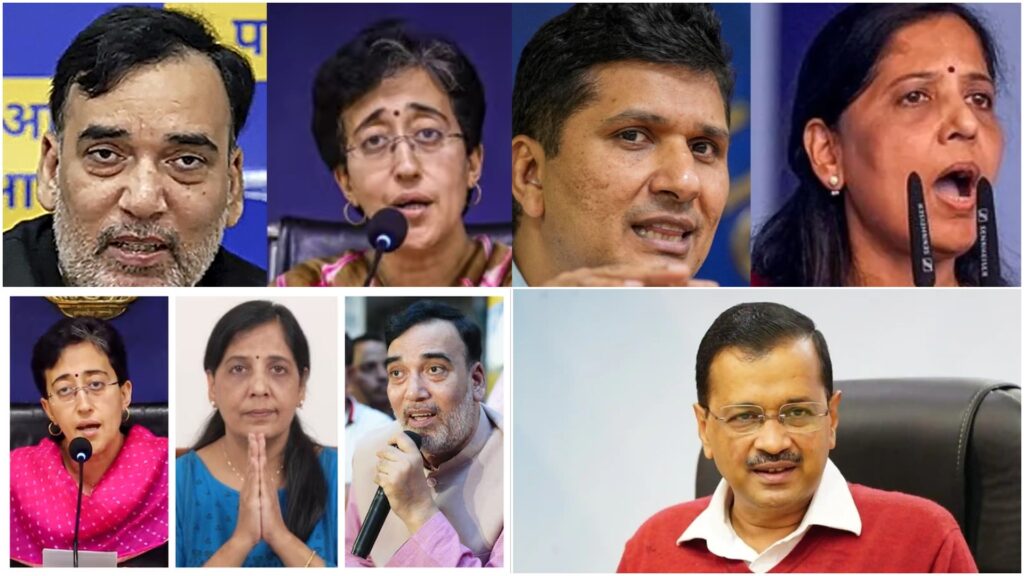
Delhi Chief Minister Arvind Kejriwal’s recent announcement that he will resign within the next two days has sparked speculation about his potential successors. Following his release from Tihar Jail on bail, Kejriwal stated that he would only return to the chief ministerial role once he receives a “certificate of honesty” from the public. This declaration has led to discussions on who might take over his position in the interim.
Kejriwal also ruled out his former Deputy Chief Minister, Manish Sisodia, as a successor due to Sisodia’s ongoing legal troubles in the liquor policy case. Here are the top contenders for the Chief Minister’s post:
1. Atishi
Atishi, a prominent AAP leader, has gained significant visibility and influence during Kejriwal’s absence. Known for her proactive approach to policy reforms and social issues, she has managed 14 departments, including Education, Finance, and Public Works. Her leadership in these critical areas and her strong communication skills make her a leading candidate for the chief ministerial role.
2. Gopal Rai
Gopal Rai, a seasoned politician with a background in student activism, has been a key figure in Delhi’s political landscape. As the Minister for Environment, Forests, and Wildlife, he has a reputation for grassroots work and addressing environmental concerns. Rai’s deep connection with Delhi’s working-class communities and his experience handling labor rights and pollution control issues position him as a strong contender for the top job.
3. Kailash Gahlot
Kailash Gahlot, the current Transport Minister, has been instrumental in improving Delhi’s transport infrastructure. His achievements include expanding bus services and introducing electric buses. Gahlot’s administrative skills and experience managing large-scale projects make him a viable candidate for the Chief Minister role. His long-standing position within AAP also adds to his qualifications.
4. Sunita Kejriwal
Sunita Kejriwal, Arvind Kejriwal’s wife and a former Indian Revenue Service (IRS) officer, has been actively involved in AAP’s campaigns and public engagements. Her experience in bureaucratic processes could be valuable in managing Delhi’s complex challenges. However, her non-political background and the requirement to join AAP and win an election to become Chief Minister present significant hurdles. Additionally, appointing her could attract criticism over family-driven politics, especially with upcoming Assembly elections.
Challenges and Considerations
The succession of Delhi’s Chief Minister comes with its set of challenges. The AAP will need to navigate internal party dynamics, public perception, and constitutional constraints. With Assembly elections scheduled for February 2025, the timing of any bypolls and the potential impact of the Opposition’s criticisms will be crucial factors.
As the political landscape in Delhi remains fluid, the selection of the next Chief Minister will be a critical decision for AAP and its future governance.